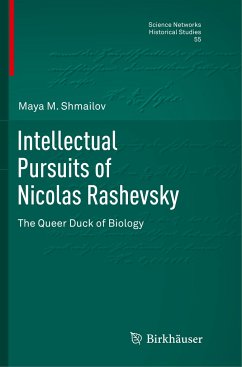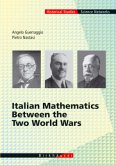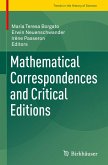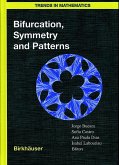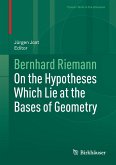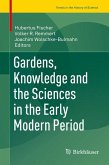Who was Nicolas Rashevsky? To answer that question, this book draws on Rashevsky's unexplored personal archival papers and shares interviews with his family, students and friends, as well as discussions with biologists and mathematical biologists, to flesh out and complete the picture.
"Most modern-day biologists have never heard of Rashevsky. Why?" In what constitutes the first detailed biography of theoretical physicist Nicolas Rashevsky (1899-1972), spanning key aspects of his long scientific career, the book captures Rashevsky's ways of thinking about the place mathematical biology should have in biology and his personal struggle for the acceptance of his views. It brings to light the tension between mathematicians, theoretical physicists and biologists when it comes to the introduction of physico-mathematical tools into biology. Rashevsky's successes and failures in his efforts to establish mathematical biology as a subfield of biology provide an important test case for understanding the role of theory (in particular mathematics) in understanding the natural world.
With the biological sciences moving towards new vistas of inter- and multi-disciplinary collaborations and research programs, the book will appeal to a wide readership ranging from historians, sociologists, and ethnographers of American science and culture to students and general readers with an interest in the history of the life sciences, mathematical biology and the social construction of science.
"Most modern-day biologists have never heard of Rashevsky. Why?" In what constitutes the first detailed biography of theoretical physicist Nicolas Rashevsky (1899-1972), spanning key aspects of his long scientific career, the book captures Rashevsky's ways of thinking about the place mathematical biology should have in biology and his personal struggle for the acceptance of his views. It brings to light the tension between mathematicians, theoretical physicists and biologists when it comes to the introduction of physico-mathematical tools into biology. Rashevsky's successes and failures in his efforts to establish mathematical biology as a subfield of biology provide an important test case for understanding the role of theory (in particular mathematics) in understanding the natural world.
With the biological sciences moving towards new vistas of inter- and multi-disciplinary collaborations and research programs, the book will appeal to a wide readership ranging from historians, sociologists, and ethnographers of American science and culture to students and general readers with an interest in the history of the life sciences, mathematical biology and the social construction of science.
"This book is a passionate account of the life and ideas of Nicolas Rashevsky (1899-1972), one of the earliest proponents of employing quantitative and deductive methods in theoretical biology and a great contributor towards the establishment and recognition of mathematical biology as an independent, institutionalized discipline. ... The book is potentially of interest not only to mathematical biologists ... but to anyone with interest in the biographies of 20th century remarkable scientists." (Paul Georgescu, zbMATH 1353.92005, 2017)
"The bulk of the text covers Rashevsky's professional successes and failures during his thirty year academic career at the University of Chicago. ... The book mainly focuses on the evolution of his big picture views on how one should use mathematics to study biology and sociology theoretically. ... the book will mostly be of interest to people working in mathematical biology who are curious about some of its history and one of its twentiethcentury pioneers." (Geoffrey Dietz, MAA Reviews, maa.org, November, 2016)
"The bulk of the text covers Rashevsky's professional successes and failures during his thirty year academic career at the University of Chicago. ... The book mainly focuses on the evolution of his big picture views on how one should use mathematics to study biology and sociology theoretically. ... the book will mostly be of interest to people working in mathematical biology who are curious about some of its history and one of its twentiethcentury pioneers." (Geoffrey Dietz, MAA Reviews, maa.org, November, 2016)

